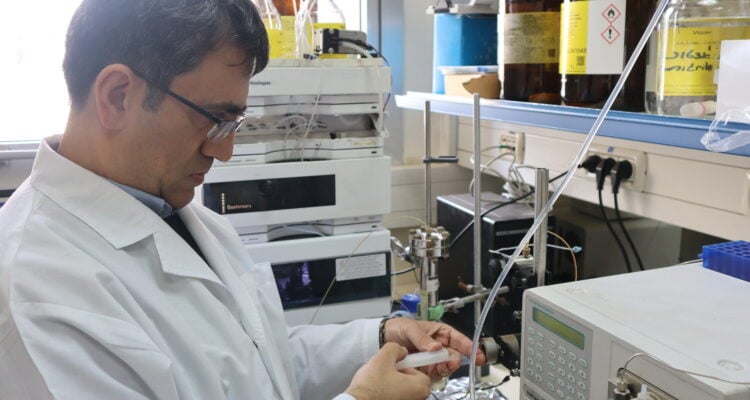This innovative therapy has demonstrated promising results in delaying disease progression by up to 36% in individuals with early-to-mild cognitive impairment.
By World Israel News Staff
A team of Israeli and Italian researchers has developed a novel technique that could significantly slow the progression of Alzheimer’s disease, the most common form of dementia.
The novel approach is the product of work done at Bar-Ilan University, in collaboration with researchers from the University of Milano-Bicocca.
Over the past three decades, conventional treatments for Alzheimer’s have largely been ineffective, primarily due to their focus on combating the fibrillar form of the pathogenic amyloid beta (A-beta) protein.
However, emerging research suggests that it is the soluble oligomeric form of A-beta that poses the greatest threat to neuronal health, leading to cognitive decline and neurotoxicity.
A recent breakthrough in Alzheimer’s treatment has come from the development of an antibody capable of recognizing both oligomeric and fibrillar forms of A-beta, offering newfound hope to the field.
This innovative therapy has demonstrated promising results in delaying disease progression by up to 36% in individuals with early-to-mild cognitive impairment.
Building upon this momentum, a collaborative effort between Israeli and Italian researchers has led to the development of a new treatment strategy targeting the early-stage aggregation of A-beta before the formation of toxic oligomers.
By harnessing the power of nanotechnology and ultra-low-energy X-rays, the researchers have successfully inhibited the aggregation and toxicity of A-beta in preclinical models, offering a potential avenue for early intervention in Alzheimer’s disease.
Prof. Shai Rahimipour, of Bar-Ilan University’s Department of Chemistry, together with Italian scientists Profs. Angelo Monguzzi and Marcello Campione from the University of Milano-Bicocca, designed nanoparticles with high affinity to the early-stage soluble A-beta, which, when activated by ultra-low-energy X-rays, effectively halt the aggregation process.
“This approach has shown promising results in neuronal cell cultures and animal models, offering new possibilities for early intervention in Alzheimer’s disease,” says Rahimipour.
The unique advantage of this approach lies in its potential to selectively target and irradiate the affected regions of the brain, minimizing the risk of side effects associated with traditional antibody-based therapies.
Furthermore, preliminary studies have demonstrated the safety and efficacy of the nanoparticles and the low-energy X-rays in preclinical models, paving the way for further exploration in human clinical trials.
“Our ultimate goal is to develop a safe and effective treatment for individuals in the early stages of Alzheimer’s, with a focus on those at high risk, such as those with familial Alzheimer’s,” states Rahimipour.
“By targeting the early-stage aggregation of A-beta, we aim to prevent disease progression and improve the quality of life for patients and their families.”
The research team holds a patent for the technology and the nanoparticles, which are composed of hydrated magnesium silicate, and has demonstrated blood-brain barrier permeability in animal models. Further research is underway to optimize the treatment regimen and assess its long-term efficacy in clinical settings.
Bring Purim Joy to Israeli Victims of War and Terror
Join us in providing Israeli victims of war and terror with much needed comfort, blessing and holiday joy.
Families have been destroyed by the horrific Hamas massacre of October 7th and ongoing terror and rockets attacks. There are so many orphans that need our love, compassion and support!
Brighten their Purim holiday by sending Purim food baskets, yummy treats, personal notes and toys for the children.
CLICK HERE TO SEND YOUR PURIM GIFT & PERSONAL NOTE TO THE VICTIMS




